European risk associations confirm their members are prioritising crisis management as the war in Ukraine rages on
Ferma, Airmic, GVNW, IGREA and Amrae are supporting their members through the latest global shock as organisations respond to Russia’s invasion of Ukraine and the many implications. In a world still emerging from the pandemic crisis, the onus is again on the risk management community, according to Airmic chief executive Julia Graham.
“There is an imperative for risk professionals to learn and apply the lessons of the pandemic and the Ukraine crisis, boost preparedness, so as to ensure the agility and adaptability of their responses during a fast-moving crisis.”
Humanitarian crisis
The conflict is a reminder of the increasingly unpredictable and complex risk landscape businesses are operating in, Graham told StrategicRISK. “The world may get even more unpredictable and tumultuous from here, and this is where risk professionals have a role to play in stepping up to help their organisations navigate and respond through it all.”
Graham said the risk association’s members are exposed to a wide range of impacts emanating from the Ukraine crisis, but that people risks are the front and centre of mind in what governments and NGOs are describing as a humanitarian crisis.
A wide range of industry sectors are feeling the effects, which range from sanctions and financial risks to supply chain disruption and energy supply issues.
“Airmic is taking a joined-up approach in guiding our members through this generation-defining crisis, as a reflection of the interconnected risks this conflict has brought. We are maintaining a resource page on our website relating to the crisis, which seeks, with the support of our partners and other business connections, to provide a risk radar for our members and the wider risk community.”
“We are also running regular meetings of our Geopolitics Special Interest Group in tandem, which have seen record numbers of attendees as well as a planned insurance-focused roundtable.
“All of this provides the platform for risk professionals to share their experiences and exchange ideas during a fast-evolving crisis with far-reaching implications.”
Ferma offers assistance
Ferma meanwhile has released a statement strongly condemning the invasion and voicing its support and sympathy for the Ukrainian people. In light of the extensive sanctions imposed on Russian organisations and individuals, the board of Ferma has suspended the membership of its Russian member, RUSRISK.
Ferma president Dirk Wegener said European risk managers are busy helping to maintain the continuity of their organisations, rolling out crisis management and business continuity plans in close cooperation with other functions and departments.
“The entire organisation is affected, including employees, supply chains, IT systems and insurance programmes.
”The experience of dealing with the COVID-19 showed how important risk and crisis management are to our resilience against disruptive events.”
Ferma is also putting its risk and crisis management expertise and resources at the disposal of the EU institutions and EU member states to help them face the crisis and prepare for future challenges.
Economic fallout begins
Amrae president Oliver Wild said French risk managers were - on the whole - more resilient coming into the current geopolitical crisis, because of their experience with COVID. But he acknowledged some fatigue was inevitably setting in after two years of the global pandemic.
Speaking to StrategicRISK, he explained the COVID experience had given crisis cells “better reflexes” in how they manage their organisation through a crisis. Certainly, the experience of supply chain disruption over the past two years has helped organisations re-evaluate their approach.
Going forward, the War in Ukraine will continue to impact the availability of goods and commodities, including gas and wheat.
There is the threat that a cereal shortage could cause social unrest and disruption in poor countries later in the year.
One of the triggers for the Arab Spring was the rising cost of commodities, including wheat, reminds Wild. “It is a tragic situation in Ukraine, but it is an economic war as well and we’re only seeing the tip of the iceberg of that,” he says. “Many countries have been under great economic pressure because of the last two years of COVID.”
Do I stay or go?
From a sanctions perspective, risk and compliance managers are also faced with adverse reputational fallout for the choices they make now. “As a risk manager you’ll often see reputation because of the risks you’re trying to manage. But here it is a direct risk effectively,” says Wild.
Amrae members are gathering for weekly webinars to discuss the situation in Ukraine as it unfolds and sharing best practice on how to navigate the risks presented, reveals Wild.
It is inevitable the geopolitical world order will shift as a result of Russia’s invasion of Ukraine. He is hoping upcoming webinars will include insights from political risk experts to help members think through various scenarios and plan accordingly.
“Geopolitical risks were probably underestimated in the risk maps of companies,” he says.
“I’m talking generally here because we’ve always had it quite high on our risk map at Veolia. And of course, now is a good time to review your risk map… once again.”
Climate transition concerns
The dependency of many European countries on Russian gas is an issue that cannot be overcome in the short term without climate transition implications.
Cristina Martinez, co-founder and board member of IGREA (Spanish Risk and Insurance Association) currently chief risk officer at Sacyr noted the scale of international economic sanctions and rating actions are “reconfiguring the existing geopolitical landscape and economic context for global business and financial markets”.
“A longer strategic vision for greater energy security (on top of the search for greener solutions) is required but the reliance on Russian oil and gas varies significantly between EU members,” she said.
“Not only is a pan-European commitment to coordination and unity required to reshape energy policy, but other regional players are essential to help Europe move towards a more secure, diverse, energy base”.
Among the main concerns of Spanish risk and insurance managers are the global intensification of social-political conflicts and supply chain disruptions.
“Prices surged from already high levels after the invasion of Ukraine, driving up the cost of raw materials, energy, commodities and further disrupting the already fragile supply chain,” she told StrategicRISK.
IGREA members are also concerned that the situation in Ukraine would do little to ease the hardening trend in the commercial insurance market.
The increase in cyber threats, for instance, could result in further challenges for insurance buyers come renewals, at a time when capacity for certain classes of business remains constrained.
Political risks underinsured
Insurability is another issue. GVNW managing director Stefan Rosenowski told StrategicRISK the association was “deeply concerned about the current armed conflict and stand behind the sovereignty and freedom of Ukraine and its people”.
“Some of our members have locations in Ukraine and fear for the safety of their employees, but also for possible damages caused by acts of war,” he said. “Others are active in Russia and currently have to reconsider their business activities there due to the sanctions applied. There is also the topic of possible confiscations and the loss of assets and investments made.”
At present, aviation insurers and reinsurers are on the hook for around $10 billion in losses relating to seized planes. This will be the largest annual loss for the class since 9/11.
Not all losses will be indemnified, warned Rosenowski.
“Many risk and insurance managers are asked about possible insurance cover,” he said. “Unfortunately, many of the risks at stake cannot be compensated by insurance. We are supporting our members in these discussions.”






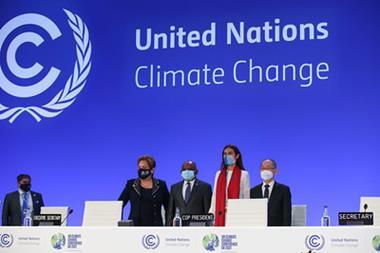
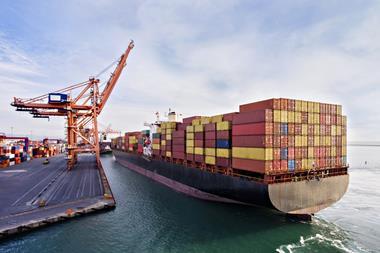
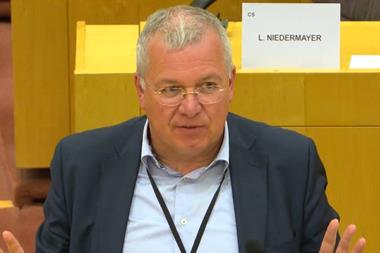
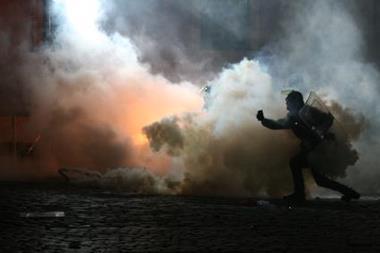
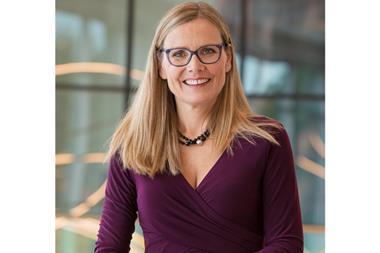









No comments yet